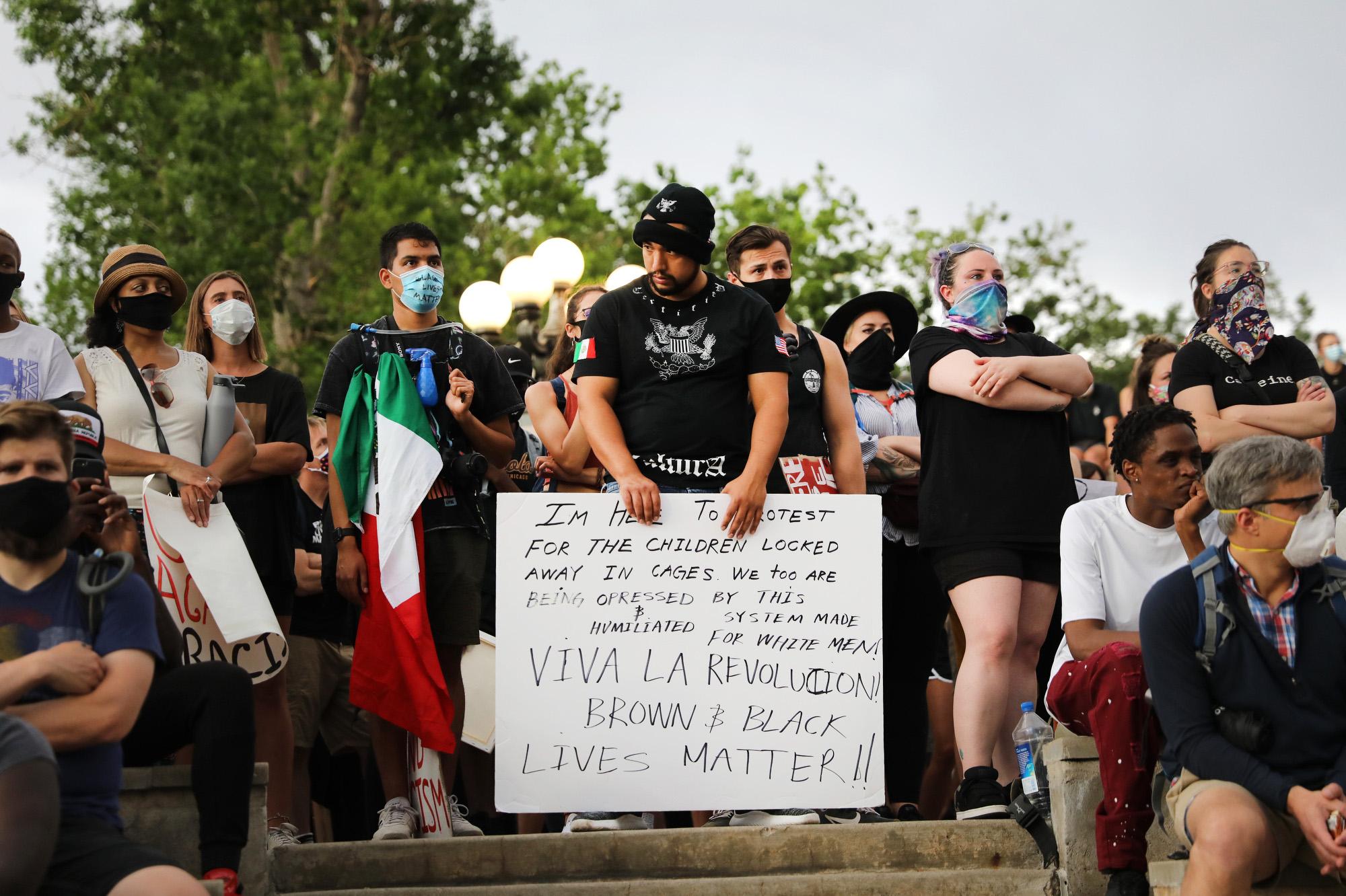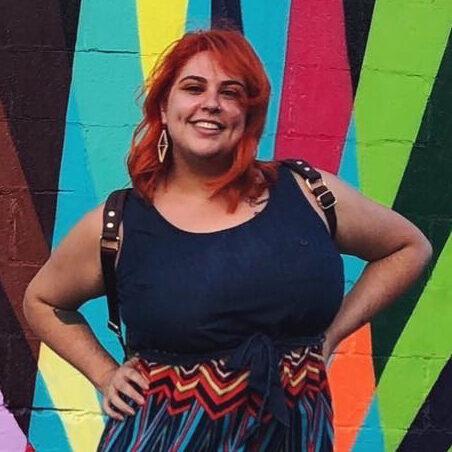
People of color have marched side-by-side for decades, calling for an end to police brutality and asking for fair, equal treatment.
In 1966, Martin Luther King Jr. wrote to farmworker champion César Chávez in support of Mexican-American rights.
“Our separate struggles are really one,” King wrote.
Now, the Black Lives Matter movement has united people from many backgrounds and races, marching in the streets to change issues like poverty and health disparities, to name a few. And there’s a lot of national attention focused on restorative justice and equality for Black Americans.
But there also exists a divide within the Hispanic and Latino community on whether to support Black people’s cause or to focus on their own.
'If it’s harder to unite, it’s harder to succeed'
Xochitl Gaytan, the co-chair of the Colorado Latino Forum, knows this debate well. She’s heard it many times over many years.
“There are people in the Latino, Chicano, Mexicano community that believe when we move in the direction of helping our Black brothers and sisters, it takes away from the Latino, Chicano, Mexicano movement and the issues that affect our community specifically,” Gaytan said.
Then there’s the argument that Black people don’t support Latinos in their own struggles. Gaytan said that type of thinking lacks depth and that dividing people of color is a mechanism of systemic racism: If it’s harder to unite, it’s harder to succeed.
“If we look at the most basic, fundamental issues, then we’ll realize after effects that Black and Brown communities are facing really come from the most fundamental white supremacist values that we all have to face,” she said.
Gaytan firmly believes that her people need to unite behind Black Lives Matter.
“Our Black brothers and sisters must be uplifted in order for us Latino, brown people, Indigenous people to be liberated and uplifted as well,” she said.
Generations of complicated conversations
This is a complicated conversation, and it doesn’t only exist within the Latinx community. There are several reasons why people choose to support the Black Lives Matter movement or not, and there are various arguments on either side.
In the Latinx community, sometimes a person’s race and their own biases — which are sometimes passed down through generations — come into play.
One argument in favor of supporting the cause goes like this: Black people have experienced some of the worst treatment in United States history, and they’re still one of the most oppressed groups in the country. If they gain more civil rights, protections and respect, it’ll benefit other marginalized groups as well.
And on the other side of the debate, some people argue that other marginalized groups need to focus their energy on their own problems.
Another complicated factor in this debate is the anti-Blackness that runs through Hispanic communities in the United States and beyond. Miguel Ceballos Ruiz said many Latinos are ingrained with racist beliefs.
“Latinos, we really need to root out our anti-Blackness and we need to address it and we really need to be vocal about it — about how we were raised and socialized in this very racist country, in this very racist system,” Ruiz said.
'Hay que mejorar la raza'
Michael Mares owns a record company called 50/50innertainment, and he works with all kinds of people. He said he supports Black Lives Matter, but he wants his people’s issues to get some recognition too. He said Latinos need to stand together.
“You stick with the same movement, you support the same person, you stay loyal to your people, you’re gonna grow,” Mares said.
He said he’s dealt with racial profiling and police violence, and he hates seeing his fellow Latinos tear each other down when there’s a lot of equality they need to gain.
“It has to be the whole Latino community coming together as one,” Mares said. “We set the differences aside and come together, and make a better community for ourselves, then I think that the Latino community will be way stronger.”
And he believes that instead of chanting “Black Lives Matter,” people should say “Minority Lives Matter,” because all people of color deserve better treatment.
There’s a phrase that many Latinos might be familiar with: “Hay que mejorar la raza.” That means, “We need to improve our race,” and it alludes to marrying a light-skinned person and having light-skinned kids, because fairer skin is considered more desirable for some people.
Ruiz said that kind of thinking is passed on through generations and deepens issues between minorities.
Facing a 'common oppressor' together
The debate over Latinos supporting Black people isn’t news to Tezcatli Diaz. She said having these conversations can bring out what she calls the “Oppression Olympics” — that is everyone saying that their group has it worse.
People of different cultures and races have been historically oppressed in various ways, and sometimes they’ll argue that their people have had it harder than others. Diaz said all of that trauma is very real and valid, but those fights can get in the way of real progress.
“Who has hurt most and who has been oppressed the most?” she asked.
“And that’s a distracting conversation because if nothing else, we can all agree on who put us in that position in the first place,” Diaz said.
To help things move forward, Diaz is hosting a series of virtual community conversations where people can discuss the traumas they've carried with them through generations. She says she hopes it will promote healing and unity between black and brown communities.
Overcoming oppression and injustice is already hard enough, Diaz said. But she argues that if everybody wants things to change, they have to put the work in — together.
“We all have a common oppressor and if we’re all trying to fight our own individual fights, we’ve been doing what they wanted us to do by design,” Diaz said. “They literally siloed off our oppression and made the way they oppress us so unique so that we can’t find camaraderie, even in the struggle, because it looks so different.”








